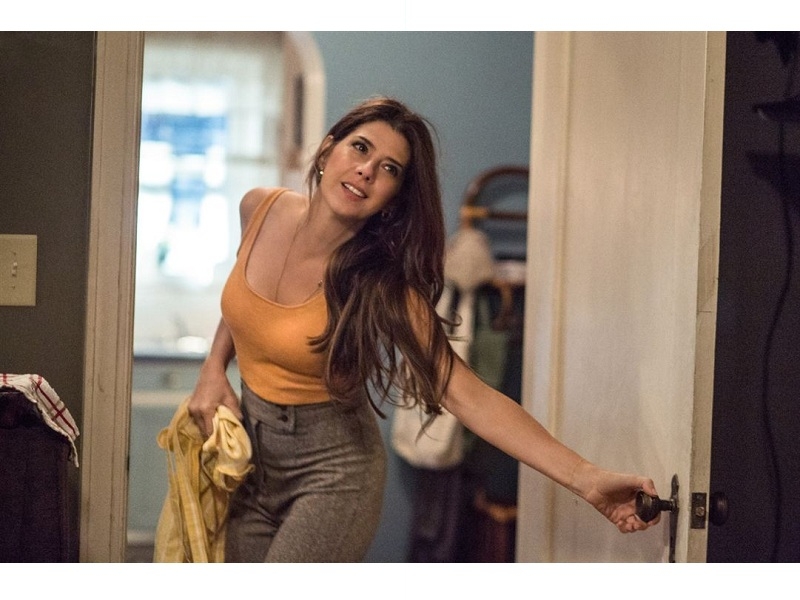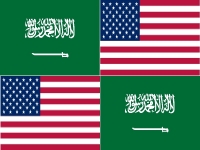Miscellaneous
JOHN KERRY REMARKS WITH SAUDI FOREIGN MINISTER ADEL AL-JUBEIR
LONDON, UNITED KINGDOM JANUARY 14, 2016

SAUDI ARABIA FLAG - USA FLAG
U.S. Secretary of State John Kerry, with Saudi Foreign Minister Adel al-Jubeir, gave full remarks in London, United Kingdom in January 14, 2016.
QUESTION : Mr. Foreign Minister, are you prepared to resume Syria´s support group cooperation with Iran ?
FOREIGN MINISTER AL-JUBEIR : We never left the Syria support group meeting. Our relationship with Iran is separate from the relationship with everybody else in terms of the Syria cooperation group. Our objective is to work through the process that was started in Vienna in order to arrive at a peaceful settlement based on Geneva I and the outcomes of the Vienna talks and the most recent United Nations Security Council resolution.
QUESTION : Mr. Foreign Minister, are you prepared to resume Syria´s support group cooperation with Iran ?
FOREIGN MINISTER AL-JUBEIR : We never left the Syria support group meeting. Our relationship with Iran is separate from the relationship with everybody else in terms of the Syria cooperation group. Our objective is to work through the process that was started in Vienna in order to arrive at a peaceful settlement based on Geneva I and the outcomes of the Vienna talks and the most recent United Nations Security Council resolution.
SECRETARY KERRY : Let me just say to everybody we ““ I´m very appreciative of the Foreign Minister making the effort to be able to be here so we could discuss a lot of issues. We are not finished. We wanted to have a chance to say a word to you. But we´re going to be continuing our conversation. And we agree ““ first of all, the alliance, the friendship between the United States and the Kingdom of Saudi Arabia remains a linchpin of our efforts in the region; it´s important. We both agree with that on both sides, and we have a lot of work to do together.
We are in complete agreement about the need to try to resolve the crisis in Syria. We will continue to work on that. We also understand the challenges that the kingdom and other countries feel in the region about interference within their countries. And as President Obama has said, the United States will stand with our allies and friends in the region, and we do. But we also want to see diplomacy work. We want to try to see if there´s a way moving forward to resolve some of these problems without moving to greater conflict.
The last thing the region needs is more conflict, and I know the Kingdom of Saudi Arabia agrees with that. But there are simple things they would like to see done that help to prevent that. And our job is to work together in order to try to get there.
So we have a lot to talk about. There are too many conflicts, and all of us would like to see a stable, secure, prosperous region in which countries do not interfere in the affairs of other countries.
So we have a lot to talk about. There are too many conflicts, and all of us would like to see a stable, secure, prosperous region in which countries do not interfere in the affairs of other countries.
QUESTION : Are you giving that same message to Foreign Minister Zarif in your calls with him ?
SECRETARY KERRY : Of course. We always talk about non-interference, and we talk about peace and stability. And the key is to create the framework within which we´re able to work towards that.
FOREIGN MINISTER AL-JUBEIR : I think if you look at ““ if I may --
SECRETARY KERRY: Please.
SECRETARY KERRY : Of course. We always talk about non-interference, and we talk about peace and stability. And the key is to create the framework within which we´re able to work towards that.
FOREIGN MINISTER AL-JUBEIR : I think if you look at ““ if I may --
SECRETARY KERRY: Please.
FOREIGN MINISTER AL-JUBEIR : If you look at the challenges that our region faces, whether in Syria, whether in Yemen, whether terrorism, whether in Iran´s interference in the affairs of the region, there ““ and whether in Libya ““ the most effective way historically for us to work through these challenges is by our ““ through our close partnership and alliance with the United States of America. And it is always when we consult intensely and work very closely together that we´re able to overcome these challenges, as we did the challenge of Saddam Hussein´s occupation ““ invasion and occupation of Kuwait in 1990, as we did subsequent challenges, and as we did in terms of the war against terrorism over the past 15 years.
We are both committed to this relationship and we´re both committed to working to broaden and deepen it in all spheres, and we are both committed to dealing with the challenges that our region faces in a way that preserves the interests of our two great nations and contributes to the prosperity, well-being, safety, and security of our respective citizens.
SECRETARY KERRY : Thank you.
STAFF: Great.
SECRETARY KERRY: Thank you, sir.
STAFF: Thanks, everyone.
PARTICIPANT: Yes, of course.
SECRETARY KERRY : Thank you.
STAFF: Great.
SECRETARY KERRY: Thank you, sir.
STAFF: Thanks, everyone.
PARTICIPANT: Yes, of course.
FOREIGN MINISTER AL-JUBEI R : What I would like to say is that we condemn the terrorist attacks that occurred in Jakarta and in Pakistan, and we condemn the ““ but this is, if anything, it should strengthen our resolve to work more effectively together to combat the scourge of terrorism.
SECRETARY KERRY : And I would just ““ we join in condemning it, but let me just make it clear these acts of terror are not going to intimidate nation-states from protecting their citizens and continuing to provide real opportunity, education, jobs, possibilities of a future. There is nothing in any act of terror that offers anything but death and destruction.
SECRETARY KERRY : And I would just ““ we join in condemning it, but let me just make it clear these acts of terror are not going to intimidate nation-states from protecting their citizens and continuing to provide real opportunity, education, jobs, possibilities of a future. There is nothing in any act of terror that offers anything but death and destruction.
And so we stand together, all of us, united in our efforts to eliminate those who choose terror, and we are absolutely committed to our fight against Daesh, against Boko Haram, against al-Shabaab, and that is the challenge evidently of our times ““ not state actors choosing to go to war with each other, but non-state actors choosing in lone events to simply go out and destroy, blow up, kill innocent people and leave destruction in their path.
The world will fight against that, the world will not accept that, and we will do what is necessary. We are open to peaceful ways of achieving our goals. Obviously, we´ve proven that again and again and again. But some people, like Daesh, have proven that they offer nothing ““ no alternative ““ but their own destruction. They invite it, and believe me, as President Obama said the other day, if that´s the choice they leave us, we´re going to do what´s necessary to protect our people.
PARTICIPANT : Thanks.
STAFF : Great. Thank you, everyone.
Source : U.S. Department of State
Ruby BIRD
http://www.portfolio.uspa24.com/
PARTICIPANT : Thanks.
STAFF : Great. Thank you, everyone.
Source : U.S. Department of State
Ruby BIRD
http://www.portfolio.uspa24.com/
Ruby Bird Riyadh Washington Syria Iran Saudi Arabia Settlement Peaceful Geneva Convention Saudi Foreign Minister Adel Al-jubeir United Nations Security Council Resolution Vienna Talks
Liability for this article lies with the author, who also holds the copyright. Editorial content from USPA may be quoted on other websites as long as the quote comprises no more than 5% of the entire text, is marked as such and the source is named (via hyperlink).






